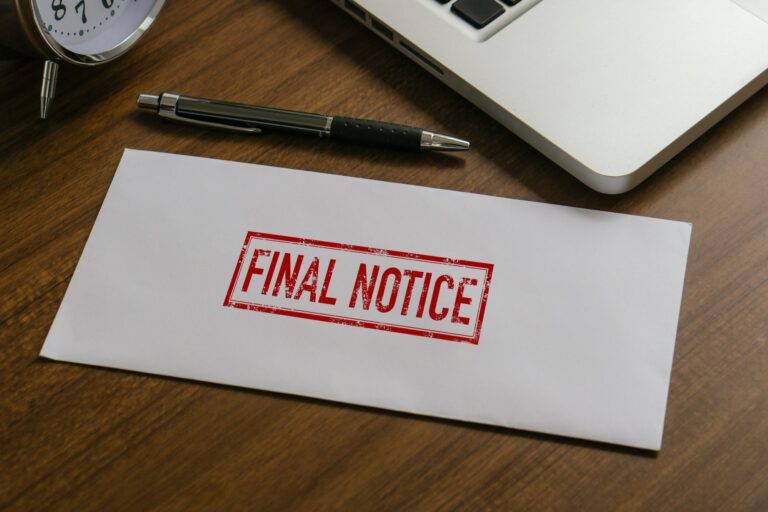
When loans fall into default or delinquency, it poses challenges for both borrowers and lenders alike. To navigate this situation effectively, several steps can be taken to address the issue and find a resolution.
By understanding the process and exploring available options, borrowers and lenders can work together towards a mutually beneficial outcome. Here’s a simplified guide to help manage loan default and delinquency.

Communication
Maintaining regular communication between borrowers and lenders is essential when addressing loan default and delinquency. During financial difficulties, it’s crucial for borrowers to quickly reach out to their lender to discuss their situation and ask for help.
Fortunately, a considerable number of lenders are receptive to collaborating with borrowers to devise solutions that meet the needs of both parties. Through open dialogue, borrowers can often negotiate temporary payment arrangements, request loan modifications, or explore alternative repayment options.
Understanding the Terms
It’s essential for both borrowers and lenders to fully understand the terms of the loan agreement, especially those related to default and delinquency. This understanding helps everyone anticipate challenges if the borrower struggles to make payments.
Borrowers can see what happens if they fall behind, and lenders can prepare to respond. Having knowledge of these terms allows borrowers to proactively seek assistance or make alternative arrangements before falling behind on payments. Lenders can use this knowledge to handle delinquency properly while sticking to the agreement.
Financial Assistance Programs
Lenders frequently offer assistance programs designed to support borrowers encountering financial hardship. These programs are structured to provide customized solutions such as reducing payments or adjusting loan terms to better suit the borrower’s circumstances.
Engaging in these programs empowers borrowers to stabilize their financial situation and navigate their payment obligations with greater ease. Additionally, lenders may propose alternative repayment plans that align more closely with the borrower’s current financial standing.
The primary objective of these initiatives is to alleviate immediate financial strain, enabling borrowers to overcome challenges and fostering a constructive relationship between borrower and lender.
Seeking Legal Advice
In certain cases, borrowers or lenders might need to seek legal advice to understand their rights and obligations in the loan agreement. Legal guidance can clarify the consequences of default or delinquency and help handle legal complexities efficiently.
Lawyers can also suggest ways to resolve the situation, like negotiation or alternative dispute resolution. Consulting with a lawyer enables informed decisions that protect both parties’ interests and comply with relevant laws.
Ultimately, legal advice is a proactive approach to address loan issues promptly and find fair solutions.
Credit Counseling
Credit counseling services provide vital support for borrowers dealing with debt. They help create personalized budgets and plans to manage debt effectively. Counselors consider factors like income and expenses to tailor repayment strategies.
Through individual sessions, borrowers learn various approaches to address their financial challenges and achieve stability. Additionally, counselors educate borrowers about options such as debt consolidation or negotiating with creditors.
By equipping borrowers with knowledge and tools, these services empower individuals to regain control over their finances and work towards long-term stability. Seeking assistance from credit counseling services is a proactive step towards achieving financial wellness and independence.

Foreclosure or Repossession
If a borrower struggles to make payments on a loan backed by collateral like a house or car, the lender may start foreclosure or repossession proceedings. This allows the lender to take back the property to cover the unpaid debt.
Borrowers need to know their rights because laws on this vary. Getting legal advice is important as it helps borrowers understand their options and protections.
Lawyers can help defend against foreclosure or repossession, negotiate with lenders, or find alternatives to avoid losing the collateral. Knowing their rights and seeking legal help gives borrowers the tools to handle these tough situations and possibly find solutions that ease the financial impact.
Debt Settlement
Debt settlement offers a way out for borrowers in financial trouble, with lenders sometimes agreeing to accept less than what’s owed. Typically, this involves borrowers making one lump sum payment to clear the debt.
It’s essential to think it through as it can affect credit scores and taxes. Settling for less might hurt the credit score, making it harder to get loans later on. Plus, forgiven debt might be taxed as income by the IRS.
It’s wise for borrowers to weigh the pros and cons carefully and maybe talk to financial or legal experts before deciding. Being aware of the potential impacts helps borrowers make smart choices that fit their financial situation.
Bankruptcy
Bankruptcy is a final option for borrowers facing overwhelming debt. While it can provide relief from financial burdens, it comes with lasting consequences. Filing for bankruptcy can seriously hurt the borrower’s credit score, making it harder to get loans or credit cards in the future.
Plus, bankruptcy stays on the credit report for years, affecting lenders’ trust in the borrower’s creditworthiness. Before choosing bankruptcy, borrowers should carefully consider its long-term effects and look into other options.
Seeking advice from financial or legal experts can help borrowers make smart decisions that fit their financial situation. Understanding both the upsides and downsides of bankruptcy empowers borrowers to handle their financial struggles and work towards a more secure future.

In short, handling loan default and delinquency requires clear communication, understanding the loan terms, and finding solutions that benefit both borrowers and lenders. Open dialogue and cooperation help both parties work through challenges together.
Borrowers need to know their rights and explore ways to resolve the situation. By collaborating and staying informed, borrowers and lenders can lessen the effects of default and delinquency, building stronger financial relationships and reaching positive results.



Subscribe for our monthly newsletter to stay updated.

Startup loans help service-based businesses succeed without a storefront. This guide breaks down funding options for service entrepreneurs, how to qualify without a physical location, and how to use financing to scale operations, invest in tools, and build long-term stability.

Startup loans help service-based businesses succeed without a storefront. This guide breaks down funding options for service entrepreneurs, how to qualify without a physical location, and how to use financing to scale operations, invest in tools, and build long-term stability.

Startup loans help service-based businesses succeed without a storefront. This guide breaks down funding options for service entrepreneurs, how to qualify without a physical location, and how to use financing to scale operations, invest in tools, and build long-term stability.